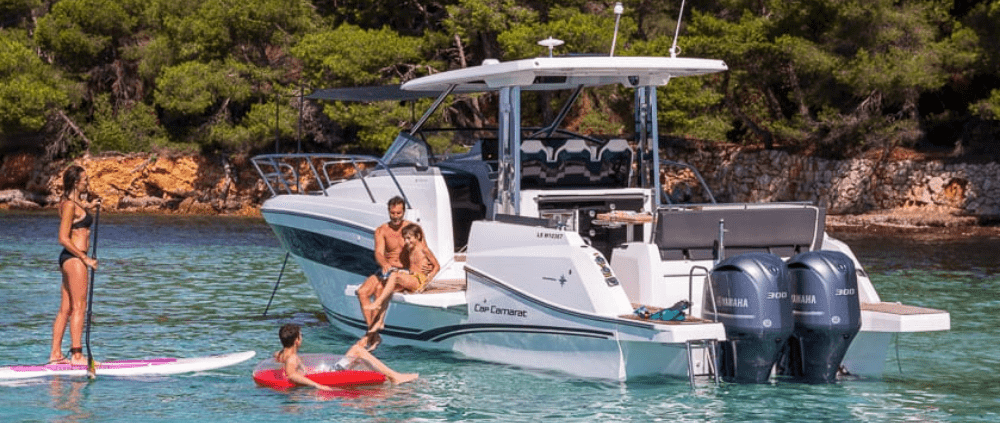Best Boat Batteries for Marine Applications: A Complete Guide for Reliable Power on the Water
When it comes to marine adventures—whether it’s weekend cruising, long offshore trips, or powering onboard electronics—choosing the best boat battery is essential. Yet, if you’ve ever typed “best boat batteries marine” into a search engine, you’ve probably noticed how confusing it can be. Different brands, battery chemistries, and marketing terms make it hard to decide which option is truly reliable for your vessel.
This guide breaks down what actually matters when selecting a marine battery: the core types, key performance factors, common applications, and how lithium technology is reshaping onboard power systems.
- Understanding the Role of Marine Batteries
Marine batteries are more than just energy sources—they are the lifeline that keeps your boat operational. From starting the engine to running navigation systems, lighting, sonar, and even the refrigerator, marine batteries must endure high vibrations, temperature swings, and frequent charge-discharge cycles.
Unlike automotive batteries, marine batteries are designed for both starting power and deep-cycle energy delivery, depending on their internal construction.
- Main Types of Boat Batteries
When searching for the best boat batteries, you’ll generally encounter three main categories:
(1) Starting Batteries
These provide a quick burst of power to start your boat’s engine. They use thinner lead plates for higher current output but are not built for deep discharge.
(2) Deep-Cycle Batteries
Deep-cycle marine batteries supply steady power over a longer period—perfect for trolling motors, lighting, and onboard electronics. They’re designed to handle repetitive charging and discharging cycles.
👉 For a detailed overview of deep-cycle performance and maintenance, check out Deep Cycle Marine Battery: What You Need to Know for Reliable Onboard Power.
(3) Dual-Purpose Batteries
As the name suggests, these serve both as starting and deep-cycle batteries. They’re convenient for small to medium boats where space and weight are limited.
- Battery Chemistry: Lead-Acid vs. AGM vs. Lithium
Flooded Lead-Acid (FLA)
Traditional but affordable, flooded lead-acid batteries require regular maintenance and proper ventilation. They are heavy and have shorter lifespans, making them less ideal for modern vessels with higher energy demands.
Absorbent Glass Mat (AGM)
AGM batteries are sealed, spill-proof, and more resistant to vibration. They offer moderate deep-cycle capability and longer lifespan compared to standard lead-acid, but still weigh significantly more than lithium options.
Lithium Iron Phosphate (LiFePO₄)
The new standard for marine power. Lithium batteries are lightweight, maintenance-free, and capable of over 3,000 cycles. They charge faster and maintain consistent voltage, even under heavy load—perfect for extended trips and power-hungry equipment.
If you’re considering upgrading to lithium, solutions like 12V LiFeLi batteries combine compact size with high capacity and long service life—making them ideal for both propulsion and auxiliary onboard systems.
- Key Factors When Choosing the Best Marine Battery
Capacity and Runtime
Measure your energy consumption before selecting capacity. A battery’s amp-hour (Ah) rating determines how long it can power your equipment between charges.
Cycle Life
Lithium batteries last up to 5–10 times longer than lead-acid alternatives, reducing replacement frequency and long-term cost.
Weight and Space Efficiency
Every pound matters on a boat. Lithium’s high energy density saves both weight and space—crucial for improving performance and fuel efficiency.
Maintenance Requirements
Flooded batteries need regular water refills and cleaning. AGM and lithium types are maintenance-free, making them more appealing for modern boaters.
Safety and Environmental Impact
LiFePO₄ chemistry is thermally stable, non-toxic, and safer than older lithium-ion types. It’s also fully recyclable—an increasingly important factor for environmentally conscious mariners.
- Marine Battery Applications by Vessel Type
The ideal marine battery depends on how your boat operates and what electrical systems it supports:
| Vessel Type | Recommended Battery Type | Key Benefit |
| Small fishing boats | AGM or lithium starting battery | Reliable cold-cranking amps |
| Pontoon boats | Dual-purpose or deep-cycle lithium | Steady energy for lights and entertainment systems |
| Sailboats | Lithium deep-cycle battery | Long runtime and fast recharge under solar systems |
| Yachts | Multiple lithium banks | Lightweight modular design, ideal for complex electrical systems |
| Commercial vessels | Heavy-duty lithium packs | Low downtime, high efficiency for professional operations |
For readers comparing lithium and traditional starting solutions, see Lithium Marine Starting Batteries: What Experienced Boaters Should Know Before Buying.
- Why Lithium Is Becoming the Preferred Marine Choice
Modern boating relies on increasingly complex electrical loads—radar, sonar, GPS, refrigeration, and even air conditioning. Lithium batteries handle these demands far better than lead-acid models, providing:
- Higher usable capacity (up to 90%)
- Fast charging with smart alternators or solar systems
- Stable voltage for sensitive electronics
- Lightweight design—up to 70% less than AGM
- Long lifespan—3,000+ cycles
While the upfront cost is higher, total cost of ownership over five to ten years is significantly lower. For fleet operators or frequent boaters, the ROI is especially compelling.
- How to Maintain Marine Batteries for Longevity
- Use a smart charger with the correct charge profile for your battery chemistry.
- Avoid deep discharging below 20% capacity (especially for lead-acid).
- Store batteries properly during the off-season in a cool, dry location.
- Check terminals regularly for corrosion or loose connections.
- Monitor voltage and temperature using a built-in BMS (for lithium batteries).
Proper maintenance not only prevents downtime but also extends overall system life and safety.
- Final Thoughts
Choosing the best boat batteries marine is not just about brand reputation—it’s about understanding how your vessel uses power, what performance characteristics you need, and how new technologies like LiFePO₄ are transforming the experience on the water.
Whether you’re upgrading an existing system or designing a new onboard power setup, lithium solutions such as 12V LiFeLi batteries offer the performance, safety, and longevity today’s boat owners expect.


